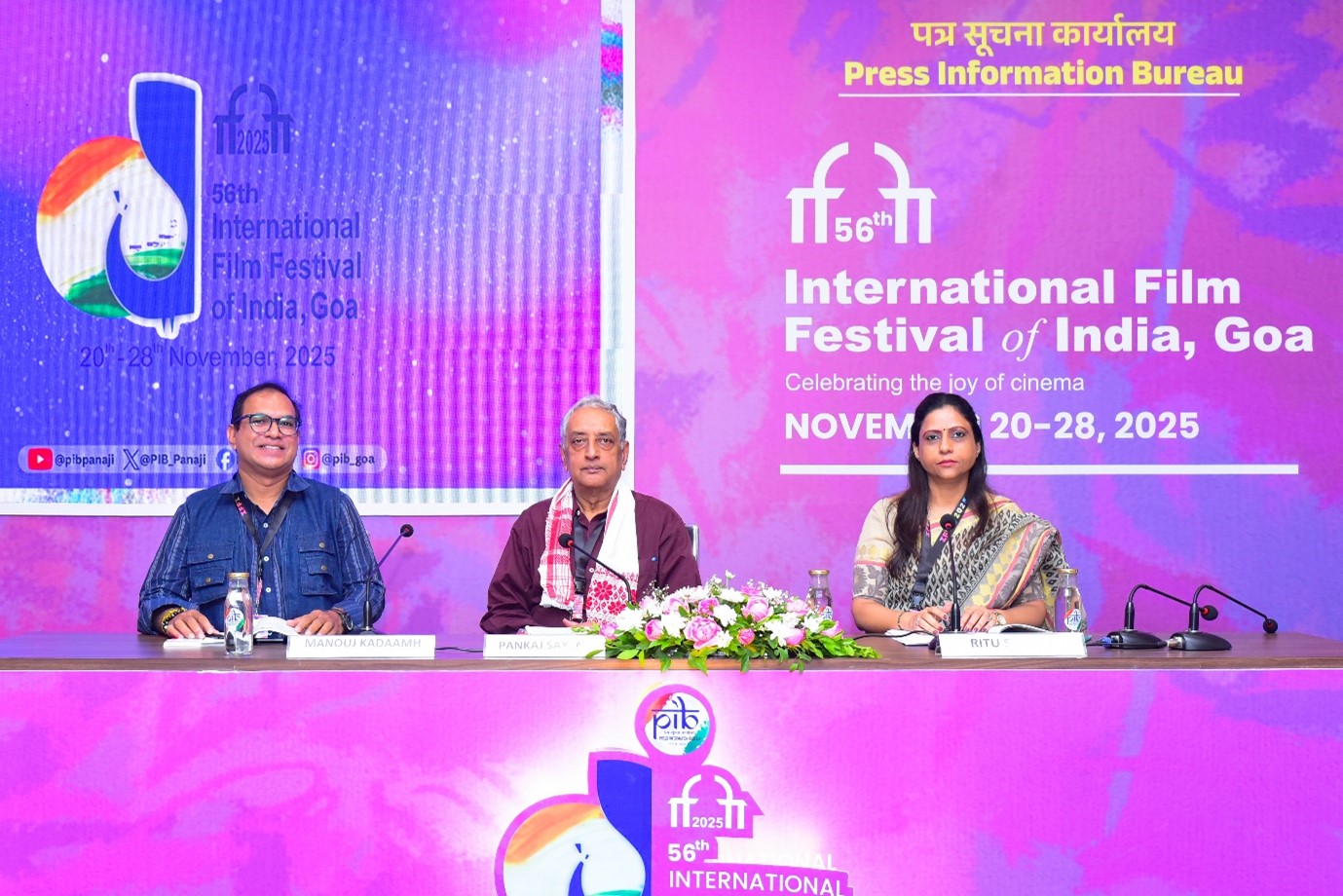The 56th International Film Festival of India (IFFI 2025), in collaboration with the International Council for Film, Television and Audiovisual Communication (ICFT), is celebrating films that uphold the ideals of tolerance, intercultural dialogue, and a global culture of peace through its annual ICFT–UNESCO Gandhi Medal. Introduced at the 46th edition of IFFI in 2016, the award has become one of the festival’s most respected recognitions, honouring cinema that inspires compassion, harmony, and social responsibility.
This year, ten films from around the world are competing for the prestigious medal. The lineup features entries from the UK, Norway, Kosovo, Iraq, Chile, Japan, and three from India, reflecting IFFI’s commitment to diverse storytelling and global representation. The films in competition include Brides (UK), Hana (Kosovo), K Poper (Iran), The President’s Cake (USA–Iraq–Qatar), Safe House (Norway), Tanvi The Great (India), The Wave (Chile), Vimukt (India), White Snow (India), and Yakushima’s Illusion (Belgium–France–Japan–Luxembourg).
About the ICFT–UNESCO Gandhi Medal
Representing the universal ideals of Mahatma Gandhi, the ICFT–UNESCO segment of IFFI honours films that embody peace, non-violence, and intercultural understanding. The award recognises works that go beyond artistic brilliance to embrace themes of inclusivity, social awareness, and ethical reflection. Over the years, the Gandhi Medal has spotlighted filmmakers whose narratives foster compassion, unity, and dialogue among cultures, affirming cinema’s transformative power to illuminate humanity and build bridges across societies.
The ICFT–UNESCO Gandhi Medal Jury for IFFI 2025 is chaired by Dr. Prof. Ahmed Bedjaoui (Algeria), with members Xueyuan Hun (China), Serge Michel (France), Tobias Biancone (Switzerland), and Georges Dupont (Luxembourg).
Speaking at a PIB press conference, acclaimed filmmaker Manouj Kadaamh, Honorary Representative of ICFT–UNESCO Paris, said the award recognises films that project humanitarian values, depicting non-violence, communal harmony, and social justice. He noted that 2025 marks the eleventh year of ICFT’s partnership with IFFI, underscoring a shared mission to promote meaningful cinema.
Kadaamh also discussed emerging conversations around AI in filmmaking, observing that while AI can assist in creating scenes difficult to shoot, “there has to be a human element in films—emotions cannot be computerized.”
Pankaj Saxena, Artistic Director (Programming), NFDC, highlighted that the ICFT–UNESCO Gandhi Medal is one of IFFI’s three programmed competitions and is guided by a unique mandate—to bring civilizations and cultures together through cinema that promotes peace and prosperity. Saxena noted the growing representation of women filmmakers at the festival, with an increasing number of films led by women voices, reflecting IFFI’s aim to showcase global stories without domination by any single region.
He added that film festivals must curate works that elevate cinematic taste, celebrate artistic integrity, and reflect the human condition. While acknowledging that violence is a primordial instinct, Saxena emphasised the importance of portraying it responsibly rather than as a tool for commercial sensationalism.














